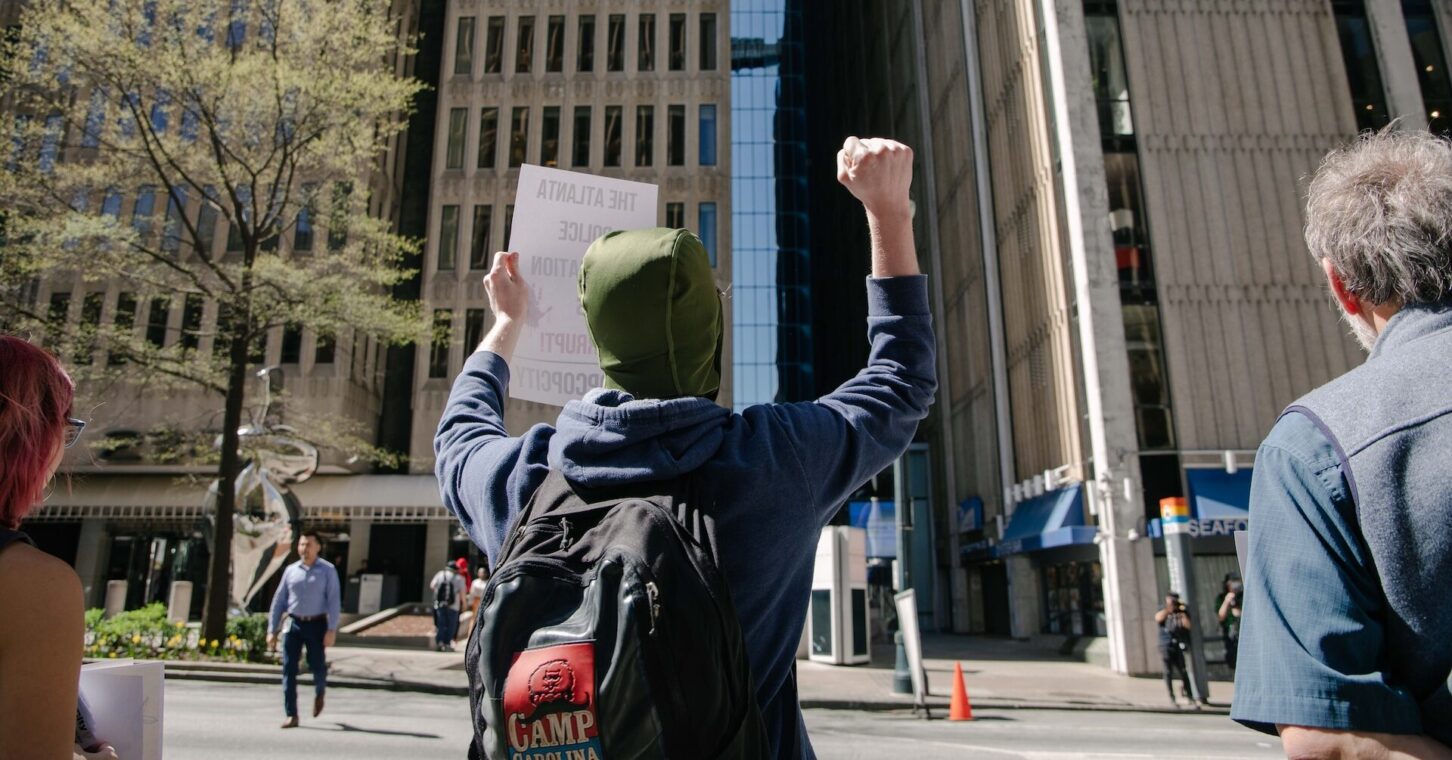
There are times when the complexity and variety of threads to a story are the reasons it is so compelling – but also so hard to understand. The saga around Atlanta’s proposed Public Safety Training Center is such a story.
The center has generated headlines nationally, but in case you haven’t been following along: For more than two years, the city of Atlanta and the Atlanta Police Foundation have been working to replace aged training facilities for police and firefighters that were condemned and closed. They plan to build a new dual-purpose training center in DeKalb County.
All the while, activists have been trying to block what they’ve derisively branded “cop city.”
Among the most prominent aspects of this story:
- Activists are trying to stop a police training facility following the erstwhile “defund the police” movement.
- Some activists argue the issue is really about protecting the forested land on which the facility would be built, and acknowledging that it once belonged to native peoples.
- In January, there was an incident in which a state trooper was wounded and an activist shot and killed.
- Activists want a voter referendum on building the facility, even though it’s unclear they have a legal right to do so. The city is treating their petition as legitimate.
- Earlier this month, Georgia Attorney General Chris Carr charged 61 activists on counts of racketeering and domestic terrorism. Only 13 of those charged are from Georgia.
We now move into the opinion portion of this opinion column.
Atlanta residents (like myself) have seen public safety become a major local issue since 2020. At the same time, we have understood the anguish about police-involved shootings to be best channeled into better training for law enforcement. No one wants to see anyone die needlessly, but “defunding the police” is not a serious option.
It is hard to square the need for better training – including, according to a website about the center, training about “de-escalation techniques, mental health, community-oriented policing, crisis intervention training as well as Civil Rights history education” – with the vociferous and sometimes violent opposition.
The opponents claim the facility will teach “military-like maneuvers” and “urban warfare” designed to “kill black people and control (their) bodies and movements.” The notion that any city – but especially Atlanta, which has elected black mayors for a half-century and has a very diverse police force – would engage in those tactics is utterly far-fetched. Again, the website about the facility flatly denies that it will engage in “military or combat style training,” house “military style vehicle” or use “military or military style helicopters,” or any other kind of aircraft.
The interest in protecting the forest and acknowledging the native Americans who once lived in it may be genuine. But are these local priorities? Available opinion polling shows Atlantans either slightly or solidly support the center. They, not out-of-state activists who will move on when this is settled, are the ones who must live with the outcome.
Finally, there is the possible referendum. Again, it is not entirely clear the petitioners have the right to a referendum, or that they have gone about their petition lawfully. But it should be clear that a referendum is a bad idea. Governance, tribalism and polarization are challenging enough today, leaving some elected officials afraid to make tough but necessary decisions. The last thing we need is for a small but loud faction to intimidate them and nullify their actions.
We have a representative government, not a direct democracy. The Founders recognized the dangers of the latter, which can tend toward mob rule, and those dangers are amplified when direct democracy is wielded selectively and erratically. Elections are the people’s check on their representatives’ decisions. For cases where that’s insufficient, or where the legality of those decisions is questionable, we have courts and the law.
Ultimately, this story is about “the law”: Lawfully elected representatives are making lawful decisions to improve the training of those who enforce the law. Are we going to follow the law, or not?